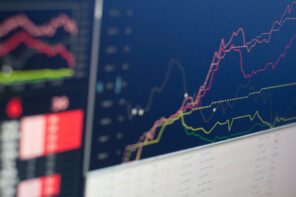Since the onset of the COVID-19 pandemic a year ago, the stock market has behaved in strange and unexpected ways. Tech stocks soaring throughout 2020 and their fall in past weeks as well as the recent GameStop and r/wallstreetbets fiasco are examples of this. Fears that the stock market is overvalued, consumer spending is lacking and concerns over rising inflation have plagued some investors. Despite these aberrations and worries, the long-term financial outlook for 2021 may be a hopeful one.
The first and main reason for this is the improvement of the COVID-19 situation. On March 2nd, President Joe Biden forecasted that vaccines would be available for every adult in the US by the end of May, much sooner than expected. This coupled with recent reopenings across the US could mean a return to normal quicker than most predicted. Congress also recently passed Biden’s $1.9 trillion stimulus plan which is set to be signed on March 12th.
What is true about inflation is that it should not erode the value of equity if it is coupled with real growth in GDP.
There is reason to hope that the economic benefit of these changes will come soon. An important financial indicator, the US non-farm payrolls revealed on March 5th that 379,000 jobs were added to the US economy in February, a large improvement over the expected 180,000. In addition, most of this increase came from the leisure and dining industries, an indication that US reopenings are having a positive effect. Increases in consumer spending due to job creation will likely benefit companies in the consumer sector and thus the stock market.
On the issue of consumer spending, some economists are concerned that it will not return to pre-pandemic levels soon due to recessionary saving. The worry is that household income from stimulus checks and re-employment will be saved, not spent. Despite this concern, surveys of economists have revealed an increase in expected annual GDP growth from 3.2% to 5.5% 2021. It appears likely that as lockdowns relax, consumers will be willing to spend at least part of their savings on activities that were previously unavailable. Indeed, household spending may be the push that is needed to end the recession. Taking a long-enough view, this increase in spending is bound to happen eventually as the COVID-19 situation continues to improve.
Another fear of investors is increases in inflation as consumers spend more and lockdowns ease. The problem is that the Federal Reserve may choose to raise interest rates early to counter inflation. This would hurt tech stocks since many of them rely on borrowing for their growth. This fear is a reason for the dip in tech stocks over the past few weeks. Popular belief is that inflation erodes the value of equity markets, however Fed chair Jerome Powell has expressed little concern. What is true about inflation is that it should not erode the value of equity if it is coupled with real growth in GDP. As mentioned before, this growth is something that economists are predicting for 2021 and will inevitably happen as the pandemic recedes. Thus, investor worries about inflation are likely overblown.
Lastly, the topic of stock market bubbles has been common since the beginning of the pandemic. Many have claimed that tech stocks have become a bubble during the pandemic and some – such as the vice-chairman of Berkshire Hathaway, Charlie Munger, have claimed that the stock market itself is overvalued. The question of whether tech stocks are a bubble remains to be resolved, but even if they are this is not a reason to believe that the entire market is a bubble. If tech stocks decline, it is likely to be combined with gains in the leisure, consumer, and travel industries as those sectors open.
Throughout the pandemic, reasons for hope have been few and far between.
Reallocation of value away from tech stocks to other sectors can be interpreted as an adjustment in the stock market that reflects the changing economic reality of a world slowly returning to normal, even if it hurts some investors. As with the inflation issue, if stock market gains such as the Dow Jones’s recent high of $32,389 are backed up by real economic growth, as the non-farm payrolls and GDP estimates suggest, there should be little concern about overvaluation.
Throughout the pandemic, reasons for hope have been few and far between. Regarding the stock market, there have been fears around lack of consumer spending, inflation from consumer spending and bubbles. While these concerns are understandable given the strange behaviour of markets since the beginning of the pandemic, there is undoubtedly reason for hope. While there may be changes and aberrations in the market as the pandemic recedes, a big-picture view would suggest that as COVID-19 improves, so should the stock market’s performance.








